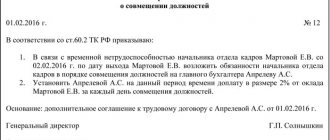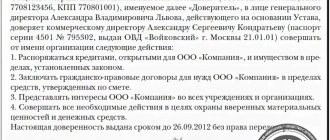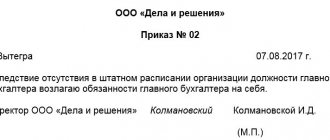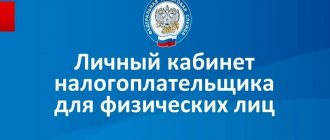Who can be exempt from paying VAT under Article 145 of the Tax Code of the Russian Federation
Both organizations and individual entrepreneurs (IP) can receive VAT exemption. The main thing is that the following condition is met: the amount of revenue from the sale of goods, works, services (excluding VAT) for the three previous consecutive calendar months should not exceed 2 million rubles. (clause 1 of article 145 of the Tax Code of the Russian Federation).
Note that these three months are not necessarily a quarter. This can be any three consecutive months - for example, February-March-April, August-September-November, etc.
Not entitled to receive exemption from VAT (clause 2 of Article 145 of the Tax Code of the Russian Federation):
- persons selling excisable goods;
- organizations that are exempt from VAT as participants in the Skolkovo project.
Newly created organizations and newly registered individual entrepreneurs also cannot apply for exemption during the first three months of work. They don't yet have the required three months' revenue.
From 01.01.2019, firms and individual entrepreneurs on the Unified Agricultural Tax pay VAT to the budget. They also receive the right to tax exemption under Article 145 of the Tax Code of the Russian Federation. However, both the conditions of exemption and the form of notification of exemption are different for such payers. The officials mentioned them in passing, and we will not dwell on them either.
How to determine the amount of revenue for which Article 145 of the Tax Code of the Russian Federation is applicable?
The amount of revenue for the purposes of applying Article 145 of the Tax Code of the Russian Federation (no more than 2 million rubles excluding VAT for 3 consecutive calendar months) is determined by a company according to accounting data (Resolution of the Plenum of the Supreme Arbitration Court of the Russian Federation dated May 30, 2014 No. 33). Individual entrepreneurs use data from the income and expense ledger. However, the amount of revenue does not include:
- Revenue from transactions exempt from VAT, not subject to VAT and performed outside the territory of the Russian Federation (letter of the Federal Tax Service dated May 12, 2014 No. GD-4-3 / [email protected] ). In particular, they do not take into account income from types of activities subject to UTII if a company or individual entrepreneur combines the OSNO regime with it, under which they intend to receive an exemption from VAT (letter of the Ministry of Finance of the Russian Federation dated March 26, 2007 No. 03-07-11/72).
- Advances received from buyers (letter of the Federal Tax Service of the Russian Federation for Moscow dated April 23, 2010 No. 16-15/43541, resolution of the Federal Antimonopoly Service of the North-West District dated April 20, 2012 No. A26-4179/2011).
In what cases the Unified Agricultural Tax payer pays VAT and submits a declaration, find out in ConsultantPlus. If you do not have access to the K+ system, get a trial online access for free.
How to calculate revenue indicator
When calculating the limit, you need to include only revenue from VAT-taxable transactions.
Example 1. Determination of revenue for VAT exemption A company on the general system plans to exercise the right to VAT exemption from August 2022.
For the three previous consecutive calendar months, revenue from the sale of non-excisable goods amounted to:
- May – 600,000 rub. (including VAT – 100,000 rubles);
- June – 720,000 rub. (including VAT – 120,000 rubles);
- July – 960,000 rub. (including VAT – 160,000 rubles).
In addition, in May the company sold a plot of land it owned for RUB 340,000.
The total amount of revenue for the three indicated months excluding VAT amounted to 2,240,000 rubles. (600,000 – 100,000 + 720,000 – 120,000 + 960,000 – 160,000 + 340,000).
Operations for the sale of a land plot are not recognized as subject to VAT taxation (subclause 6, clause 2, article 146 of the Tax Code of the Russian Federation). Therefore, this amount does not need to be taken into account when determining revenue for applying VAT exemption.
Since 1,900,000 (2,240,000 – 340,000) is less than 2,000,000, the company has the right to send a notification to the tax office about the use of the right to VAT exemption from August.
When determining the amount of revenue, income received from the sale of excisable goods is not taken into account, since exemptions cannot be applied to such transactions. The list of such goods is in Article 181 of the Tax Code of the Russian Federation.
If a company sold both excisable and non-excise goods, then it can receive an exemption from VAT. However, only transactions involving the sale of non-excisable goods do not need to be taxed. In this case, the company must keep separate records of sales of such goods.
When the right to exemption from VAT is lost
In some cases, a taxpayer who has already received the right not to pay VAT may lose it. This happens in cases where:
- the profit of an individual entrepreneur or enterprise is above 2 million rubles for three months in a row;
- sales of excisable goods appear.
Important! When assessing the amount of revenue, tax specialists also look at those periods that extend beyond the exemption period.
Attention! Those individual entrepreneurs and LLCs that, during the exemption from VAT, switched to UTII or the simplified tax system, may no longer submit documents to confirm the right to exemption from VAT.
The procedure for getting rid of VAT is not the most complicated matter; it requires a careful approach. Therefore, if there is uncertainty about the advisability of using it, for example, due to plans for business development and increasing turnover, it would be wiser to simply switch to another tax system, for example, the simplified tax system. However, in cases where the transition to other tax regimes is impossible, VAT exemptions are an excellent way to reduce the burden on an enterprise for tax accounting and reporting, as well as payment of taxes.
Documents for notification
From 04/01/2019, two new forms of notifications on the use of the right to VAT exemption are in effect. A separate form was introduced for Unified Agricultural Tax payers and a separate one for all others - those whose revenue did not exceed 2 million rubles for three months.
The new forms were approved by Order of the Ministry of Finance of the Russian Federation dated December 26, 2018 No. 286n. Order of the Ministry of Taxation dated July 4, 2002 No. BG-3-03/342, containing the old form of notification, has become invalid.
Along with the notification, you must submit (paragraph 2, paragraph 3, paragraph 6, article 145 of the Tax Code of the Russian Federation):
- extract from the balance sheet (for legal entities);
- an extract from the books of income and expenses and business transactions (for individual entrepreneurs);
- extract from the sales book.
Copies of logs of invoices received and issued are no longer needed.
Extract statements in any form. But please note that they must clearly show revenue for the previous three months.
An extract from the balance sheet is provided in the form of a certificate of revenue, which indicates the total amount of revenue excluding VAT for the last three months and broken down by each month, or in the form of a copy of the balance sheet and (or) income statement.
An extract from the sales book is usually drawn up in the form of a certificate, which indicates the total line from the book for the last three months.
How to obtain VAT exemption in 2020-2021
Start applying VAT exemption under Art. 145 of the Tax Code of the Russian Federation is possible from the first day of any month during the calendar year. In this case, you must inform your Federal Tax Service about the application of the exemption no later than the 20th day of the month from which you began to use the exemption (clause 3 of Article 145 of the Tax Code of the Russian Federation).
Read about the consequences of missing the deadline for submitting a notification in the article Do not delay in submitting documents for exemption under Art. 145 Tax Code of the Russian Federation .
The form of the message is a notification about the use of the right to exemption from the taxpayer’s obligations related to the calculation and payment of VAT. The forms were approved separately for Unified Agricultural Tax payers and for all others (Order of the Ministry of Finance dated December 26, 2018 No. 286n). for agricultural producers can be found here. Find the general notification form here.
Read about the application of the exemption under the Unified Agricultural Tax from 2022 in this article.
Along with the notification, you must submit (paragraph 2, paragraph 3, paragraph 6, article 145 of the Tax Code of the Russian Federation):
- extract from the balance sheet (for legal entities);
- an extract from the books of income and expenses and business transactions (for individual entrepreneurs);
- extract from the sales book.
Statements are drawn up in any form, but in such a way that the inspectorate can clearly see the amount of revenue for the previous 3 months.
The recommendations of ConsultantPlus experts will help you draw up an extract from the sales book. Get trial access to the system for free and go to the Ready-made solution.
Responsibilities of a VAT exempt person
Taxpayer exempt from VAT:
- is not exempt from issuing an invoice to the buyer. In invoices, it does not highlight VAT, but makes the inscription: “Without VAT” (Clause 5 of Article 168 of the Tax Code of the Russian Federation);
- must keep a sales book (subclause 1, clause 3, article 169 of the Tax Code of the Russian Federation);
- does not have the right to deduct VAT (subclause 1, clause 2, article 171, subclause 3, clause 1, article 170 of the Tax Code of the Russian Federation);
- includes “input” VAT in the cost of goods, works, services (subclause 3, clause 1, article 170 of the Tax Code of the Russian Federation).
At the same time, a VAT exempt from duties is not obliged to:
- calculate and pay VAT, except for cases when he issues an invoice with an allocated tax (clause 5 of Article 173 of the Tax Code of the Russian Federation);
- submit a VAT return (letter of the Federal Tax Service of Russia dated April 29, 2013 No. ED-4-3/ [email protected] );
- keep a purchase book (letter of the Federal Tax Service of Russia dated April 29, 2013 No. ED-4-3 / [email protected] ).
We must also not forget that when receiving an exemption from VAT, you are obliged to restore the generally accepted VAT deduction from the cost of goods (work, services), fixed assets, and intangible assets that will be used during the exemption period.
Release under Art. 145 Tax Code of the Russian Federation
The Tax Code of the Russian Federation provides for the possibility of a taxpayer to obtain temporary exemption from VAT.
It is provided to those organizations and individual entrepreneurs who have received revenue not exceeding two million rubles for three months in a row. Calculate revenue according to accounting rules. It is determined minus value added tax. Newly created organizations have the right to apply the benefit. For them, the three-month period is determined taking into account the month of registration. If the company is registered in September, then take into account the revenue received in September, October and November for the calculation. Even if an organization or individual entrepreneur did not conduct business, they have the right to receive an exemption (letter of the Ministry of Finance dated August 23, 2019 No. 03-07-14/64961).
Nuances of recovery
The tax must be restored in the last quarter before the start of using the exemption, if the tax exemption begins in the first month of the quarter. If you began to apply the exemption from the second or third month of the quarter, then you need to restore VAT in the same quarter (clause 8 of Article 145 of the Tax Code of the Russian Federation).
One of the conditions for accepting the “input” tax for deduction is the use of the object in activities subject to VAT (Articles 171, 172 of the Tax Code of the Russian Federation). If the organization receives a VAT exemption, this condition is not met. This means that the deductions must be restored. The tax is restored from the cost of goods and materials remaining on the organization’s balance sheet on the date the VAT exemption begins to apply. In addition, VAT must be restored from the residual value of existing fixed assets. In this case, the residual value must be determined according to accounting data. This is confirmed by paragraph 25 of the resolution of the Plenum of the Supreme Arbitration Court of the Russian Federation dated May 30, 2014 No. 33.
Before you can begin to apply the VAT exemption, you must make entries in the sales ledger for the amount of the tax recovered.
Entries are made on the basis of invoices for which tax was previously deducted. Example 2. How to restore VAT The company will apply a VAT exemption from 01/01/2019.
As of September 30, 2019, she has a fixed asset on her balance sheet with a residual value of RUB 100,000. and goods worth 30,000 rubles. (without VAT). Previously, “input” VAT was deducted from the value of all property at a rate of 20%. Let's calculate how much tax a company must recover before being exempt from VAT. The total amount of VAT to be restored is 26,000 rubles. (RUB 100,000 × 20% + RUB 30,000 × 20%). The accountant must make the appropriate entries in the sales book for the third quarter of 2022 on September 30, 2019.
Release period
Once you start using the VAT exemption under Article 145 of the Tax Code of the Russian Federation, you will not be able to refuse it within 12 calendar months (clause 4 of Article 145 of the Tax Code of the Russian Federation).
When this period expires, you must submit to the inspectorate:
- documents confirming that during the release period your revenue for every three consecutive calendar months did not exceed 2 million rubles;
- notification of the extension of the VAT exemption for the next 12 calendar months or of its refusal.
At the same time, in some circumstances the right to exemption from VAT can be lost (clause 5 of Article 145 of the Tax Code of the Russian Federation):
- if revenue for any three months exceeds 2 million rubles;
- if you sell excisable goods.
The right not to pay VAT is lost from the 1st day of the month in which the excess revenue occurred or the sale of excisable goods began (clause 5 of Article 145 of the Tax Code of the Russian Federation).
Who is eligible for release?
The conditions for VAT exemption are described in Art.
145 Tax Code of the Russian Federation. A new company or individual entrepreneur who plans to work for OSNO cannot immediately obtain an exemption. To do this, they will have to work for at least 3 months in a row and show the amount of revenue excluding VAT for this period is less than 2 million rubles. Revenue for three previous calendar months in a row is summed up: for example, August, September, October. If the company receives an exemption and its revenue level for three consecutive months exceeds 2 million rubles, it will have to pay VAT again. The exemption is lost from the beginning of the month in which revenue exceeds the limit.
Also, the taxpayer should not act as a tax agent or engage in importation. And if he sells excisable goods, he will have to keep separate records, because such goods are not exempt from VAT.
Thus, the following have the right to VAT exemption:
- companies and individual entrepreneurs older than 3 months;
- with revenue excluding VAT of no more than 2 million rubles for three consecutive months;
- without import and the role of tax agent, with separate accounting if there are excisable goods.
How to calculate revenue for VAT exemption
Rule 1. Control your revenue for three months in a row. If your company is exempt from VAT from November 1, then calculate revenue within the following periods:
- November, December, January;
- December January February;
- January February March;
- etc.
Rule 2. Take into account revenue according to accounting data. Calculate revenue without VAT. Do not take into account advances from buyers.
Only revenue from transactions that are subject to VAT is taken into account. Transactions not subject to VAT are not included in the calculation (clauses 3 and 4 of the Resolution of the Plenum of the Supreme Arbitration Court dated May 30, 2014 No. 33). Revenue is not taxed:
- from activities under special regimes - patent or UTII;
- from transactions exempt from VAT under Article 149 of the Tax Code of the Russian Federation;
- from transactions that are not subject to VAT under Art. 146 Tax Code of the Russian Federation;
- from transactions that were not performed on the territory of the Russian Federation.
Deadlines for submitting documents for release
It should still be taken into account that there is a general rule: you need to inform your Federal Tax Service about the application of the VAT exemption no later than the 20th day of the month from which you began to use the exemption (clause 3 of Article 145 of the Tax Code of the Russian Federation). If this deadline is violated, the inspectorate will try to refuse to apply your exemption.
But the law will not determine the consequences of violating this deadline. Therefore, delay cannot serve as a reason for refusing VAT exemption and additional tax assessment. Nothing can be done: this is the position set out in paragraph 2 of the Resolution of the Plenum of the Supreme Arbitration Court of the Russian Federation dated May 30, 2014 No. 33.
Moreover, since the exemption from VAT is not a permit, but a notification in nature, no decision from the inspectorate is required in this regard (see Resolution of the FAS of the Volga District dated September 22, 2008 No. A65-1347/08).
So, in order to legally avoid paying VAT, you need to meet certain conditions and take the necessary actions. However, before committing to an exemption, determine whether it will benefit you.
Working without VAT seems at first glance more profitable for the company than with VAT. After all, there is no need to pay VAT, maintain tax registers and prepare reports. VAT also requires increased responsibility for documents and increases the burden on the accountant, who needs to maintain additional tax and accounting registers for VAT accounting.
However, working with VAT increases the attractiveness of your company to large buyers, most of whom operate on a common system. And applying tax deductions can make the cost of your product lower than that of your smaller competitors.
Exemption from VAT: how to challenge the refusal
Tax authorities can refuse VAT exemption for various reasons, including far-fetched ones. But a refusal to provide benefits for formal reasons can easily be challenged in court. Arbitration practice on refusals of VAT exemption for BUKH.1S was reviewed by tax expert Igor Karmazin
.
Tax authorities are rather reluctant to provide tax benefits to businessmen. Especially when it comes to VAT benefits. The budget does not want to lose an additional source of income. And when entrepreneurs claim their legal right to benefits, they will inevitably face scrupulous scrutiny. VAT exemption is no exception, so be prepared.
Main conditions for VAT exemption
According to the law, organizations and entrepreneurs have the right to be exempt from calculating and paying VAT if for three months the amount of revenue from the sale of goods (work, services) excluding tax did not exceed two million rubles (clause 1 of Article 145 of the Tax Code of the Russian Federation).
To do this, they must submit to the tax office a written notification and documents confirming the right to such an exemption. The specified notification and documents are submitted no later than the 20th day of the month from which these persons exercise the right to release.
In other words, the law establishes a notification procedure for exercising the right to exemption from the duties of a VAT taxpayer. This right completely depends only on the will of the payer himself. Fiscal authorities cannot interfere with this right if the payer does not exceed the legal revenue limit.
At the same time, arbitration courts agree that the exemption is aimed at reducing the tax burden for taxpayers who have insignificant turnover in the sale of goods subject to VAT.
The main and only condition for exercising the right to apply the exemption is that the amount of revenue meets the maximum level. And the possibility of applying the exemption is due to the performance of transactions that, due to their small volume, are not significant for the purposes of collecting VAT.
At the same time, filing a notification is a simple formality (resolution of the Arbitration Court of the West Siberian District dated October 13, 2016 No. A70-1467/2015). Therefore, violation of the procedure for notifying tax authorities of VAT exemption does not prevent such exemption. Of course, unless the payer abuses this right.
For example, the Arbitration Court of the West Siberian District, in Resolution No. A75-5600/2014 dated August 20, 2015, considered a situation in which an entrepreneur abused his rights.
The court explained that in general, organizations and individual entrepreneurs receive the right to be exempt from fulfilling the obligations of a VAT payer if a number of mandatory conditions are met. These conditions include filing a notification (documents) with the inspectorate and compliance of the taxpayer’s revenue with the maximum level.
In the case under consideration, the entrepreneur did not submit an application for the right to apply an exemption from the calculation and payment of VAT either during a tax audit or at the stage of filing a complaint with a higher tax authority. He did not submit such a notice even when the case was considered in the court of first instance.
Under such circumstances, the decision to assess additional tax was recognized by the court as justified.
Violation of the deadline for filing a notice of VAT exemption
As we have already said, in order to exercise the right to exemption from VAT, tax authorities should be notified no later than the 20th day of the month from which you intend to use the right to exemption.
It happens that payers do not meet this deadline and submit notifications with a significant delay. From the point of view of tax authorities, such a violation of deadlines can serve as a sufficient basis for additional tax assessment and denial of benefits. Simply because the law specifies a specific deadline for submitting a notification, which payers have no right to violate. But as for the arbitration courts, they do not consider the delay in notification to be a significant violation.
This was recognized by the Plenum of the Supreme Arbitration Court of the Russian Federation in Resolution No. 33 of May 30, 2014. The Plenum explained that the payer only informs tax authorities of his intention to use the right to exemption. But the consequences of violating the notice period are not defined by law. However, by virtue of the law, such notification can be made even after the start of application of the exemption.
Therefore, persons who have actually exercised the right to VAT exemption cannot be denied the right to such exemption solely on the basis of late submission of notification. The same is true for cases of failure to timely send notice of the extension of the right to exemption.
In fact, the Plenum of the Supreme Arbitration Court of the Russian Federation pointed out the same thing in Resolution No. 57 of July 30, 2013 “On some issues arising when arbitration courts apply part one of the Tax Code of the Russian Federation.” It says here that the payer can still exercise the right to a tax benefit that was not used in previous tax periods. This is possible by submitting an updated tax return, submitting an application as part of an on-site tax audit, or submitting an application to the tax authority when paying tax on the basis of a tax notice.
Notification based on the results of control activities
Payers can learn about their obligation to comply with the notification procedure already during the tax audit and based on its results. That is, when the tax authorities have already discovered the fact of a delay in notification and held the payer accountable (added additional tax).
However, as arbitration practice shows, this circumstance does not deprive payers of the right to benefits under Art. 145 Tax Code of the Russian Federation.
In the Resolution of the Presidium of the Supreme Arbitration Court of the Russian Federation dated September 24, 2013 N 3365/13, the judges considered the dispute over additional VAT assessment in connection with the unlawful use of UTII by an entrepreneur. The court found that, as part of an on-site tax audit, the entrepreneur declared the application of an exemption from VAT in accordance with Art. 145 Tax Code of the Russian Federation. At the same time, he submitted the documents specified in paragraph 6 of Art. 145 of the Tax Code of the Russian Federation and confirming the right to such exemption.
The Supreme Arbitration Court of the Russian Federation indicated that in cases where an entrepreneur becomes aware of the need to pay VAT based on the results of inspections carried out by the inspectorate, the procedure for exercising the right to exemption from VAT is not provided for by law. But at the same time, the absence of an established procedure does not mean that this right cannot be exercised by an entrepreneur. Based on this, the decision to charge additional VAT was declared illegal.
The fact that it is possible to submit a notice of release after an inspection has been carried out was recognized by the Arbitration Court of the Volga District in Resolution No. A72-8588/2015 dated May 19, 2016. Here, the payer was denied a benefit due to his failure to provide notice until the end of the on-site tax audit.
The court explained that the procedure for exercising the right to exemption from paying VAT for cases when the need to pay VAT to an entrepreneur becomes aware of the results of an audit is not provided for by the Tax Code of the Russian Federation. Failure to submit such a statement as part of the inspection should not deprive the entrepreneur of the corresponding right. The court found that all conditions for the taxpayer to exercise the right to apply VAT exemption were met. In this regard, this right can be exercised by the entrepreneur before the higher tax authority makes a decision on the appeal.
The tax authority's argument about the failure to submit with the application the documents specified in paragraphs 3 and 6 of Article 145 of the Tax Code of the Russian Federation was also rejected by the court. The court indicated that the entrepreneur’s receipt of income in excess of two million rubles for every three consecutive calendar months was not established during the audit. Consequently, the court concluded, the inspectorate’s decision to charge additional VAT should be considered illegal.
The fact that the payer has submitted VAT returns during the inspection does not prevent the receipt of benefits.
This was confirmed, for example, by the Arbitration Court of the North-Western District in Resolution No. A26-7604/2014 dated September 25, 2015. The basis for additional VAT assessment here was the taxpayer’s application for tax deductions for this tax. The inspectorate did not provide evidence that the entrepreneur did not have the right to be exempt from fulfilling the duties of a VAT payer. Moreover, the documents submitted by the payer confirmed that he had the right to such an exemption.
The inspectorate referred to the fact that before the individual entrepreneurs submitted notifications to the tax authority, VAT returns were filed. The individual entrepreneur also used the right to apply tax deductions.
The court found that the filing of VAT returns by the individual entrepreneur was conditioned by his compliance with the decision of the tax authority. This decision contained an indication of the taxpayer's failure to fulfill the obligation to submit declarations. At the same time, the court indicated that Art. 145 of the Tax Code of the Russian Federation provides for a mechanism for restoring tax amounts accepted for deduction. As a result, the court came to the conclusion that the individual entrepreneur had the right to apply the benefits.
Failure to provide notice of VAT exemption
In some cases, organizations or individual entrepreneurs may not submit notifications at all for the purpose of exemption from the calculation and payment of VAT. For example, when they mistakenly apply one or another preferential special regime and do not consider themselves obligated to pay VAT.
In such situations, the courts also do not exclude a positive outcome of the legal dispute. In particular, this was confirmed by the Arbitration Court of the Central District in Resolution No. A36-1402/2015 dated 08/04/2016. The basis for charging VAT here was the unjustified use by the entrepreneur of the taxation system in the form of UTII.
The court found the additional assessment unlawful. The judges indicated that the inspection, having established the incorrect qualification of the activities carried out by the individual entrepreneur, should have explained to him the right to receive benefits. And check whether the individual entrepreneur meets the criteria that give him the right to exemption. The tax authorities did not do this.
Meanwhile, the court found that the amount of individual entrepreneur’s revenue excluding VAT in the disputed periods did not exceed the limit established by Art. 145 Tax Code of the Russian Federation. Accordingly, the entrepreneur would have the right to VAT exemption, which should be provided to him.
At the time of the deadline for confirming the right to exemption from VAT, the entrepreneur did not consider himself a payer of this tax in connection with the use of UTII. In this regard, he did not exercise his right to submit a corresponding notification to the tax authority.
Thus, in similar situations, payers may provide a retroactive exemption notice. But you will most likely have to defend your right in court.
Is there a chance to challenge the refusal of VAT exemption?
When presenting a VAT exemption, tax authorities may find fault with any oversight made by the payer. A formal reason for refusing to provide benefits is also a reason. And fiscal officials use this successfully.
But this does not mean that the tax authorities’ refusal cannot be challenged in court. Moreover, as practice shows, courts often side with payers, recognizing tax authorities’ refusals as illegal.
But still, in order to avoid lengthy litigation with the Federal Tax Service, it is recommended to comply with all the formalities prescribed in the Tax Code of the Russian Federation and submit a notification of the application of benefits in a timely manner.





